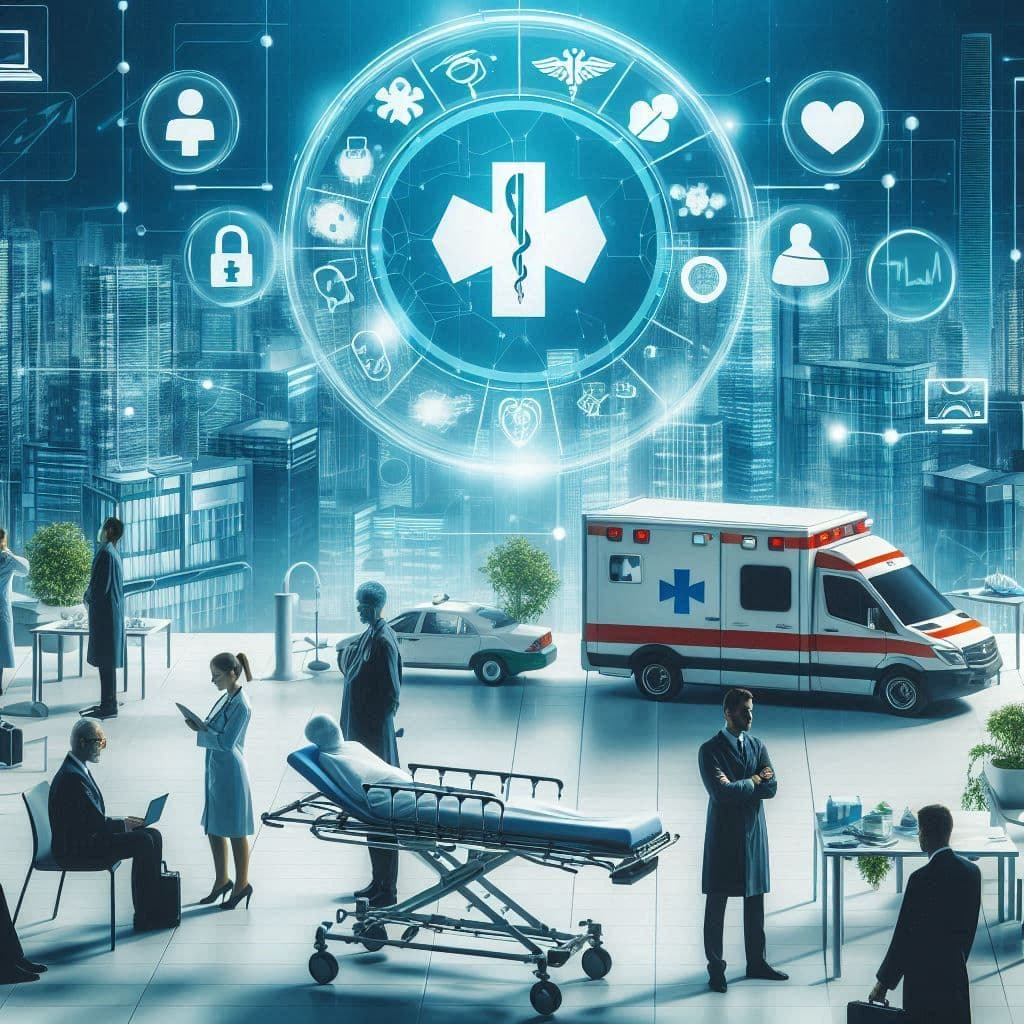
Hospitals 4.0: Towards More Efficient Healthcare Management
Discover how technology is enhancing hospital management, paving the way for a more agile and efficient healthcare ecosystem.The healthcare sector is undergoing a profound digital transformation, aiming to modernise and optimise both service delivery and the internal management of medical institutions.
In this context, hospitals are taking a leading role by incorporating advanced technologies designed to enhance agility, efficiency, and responsiveness.
Tools such as predictive analytics, modern and flexible ERP systems, artificial intelligence (AI), the Internet of Things (IoT), and machine learning are redefining how health centres manage their resources and processes.
These solutions not only enhance hospitals' ability to address current challenges but also lay the foundation for a more innovative and sustainable future in healthcare management.
Next-Generation Tools
The incorporation of advanced technological platforms in hospitals directly addresses the sector's growing demands. These solutions offer numerous benefits, including agility in decision-making, efficient data integration, and real-time reporting.
Equipped with technologies such as artificial intelligence and machine learning, they enable the automation of complex processes, reduce human error, and optimise resource utilisation.
Meanwhile, IoT facilitates the real-time monitoring of medical equipment, improving service quality and speed.
One of the most robust solutions currently available is SAP S/4HANA Cloud Public Edition, a cloud-based ERP system equipped with tools designed to transform hospital management.
This system includes industry-proven best practices, rapid implementation, and an intuitive role-based interface, minimising the need for extensive technical resources. Furthermore, it offers automatic updates and integrates technologies such as robotic automation, advanced analytics, and AI to ensure more secure, scalable operations aligned with the hospital's strategic objectives. By adopting SAP S/4HANA, healthcare institutions can optimise costs, maximise return on investment, and ensure continuous, efficient operations.
Time to Standardise
A tangible example of hospital modernisation is the digital transformation project undertaken by the Bangpakok-Piyavate hospital group in Bangkok, Thailand.
This business conglomerate, which includes hospitals such as Bangpakok 1, Bangpakok 3, and Bangkok International Hospital 9, has adopted SAP S/4HANA Public Cloud with the support of Netizen, a Thai technology company and SAP partner, and a member of United VARs. Netizen has been involved in the project from its inception.
The implementation of this solution aims to unify and standardise the hospitals' financial and accounting processes, achieving seamless integration across departments. This translates into greater operational efficiency, cost reduction, and better utilisation of internal resources. Additionally, the platform provides swift access to critical data, enabling real-time strategic decision-making.
"We have a plan to synchronise the operations of all hospitals to the same version. Our goal is to focus on standardising processes to reduce costs and share resources for internal accounting and finance systems within the hospitals", stated Chareong Chandrakamol, Managing Director of the hospital group.
The SAP S/4HANA Public Cloud solution, implemented by Netizen under its customised "Peony" version, demonstrates how technology can adapt to the specific needs of the healthcare sector, incorporating innovations such as business technology transformation.
Modernisation is Underway
The Bangkok hospitals' case highlights a global trend: the growing adoption of advanced technologies to improve hospital management.
Looking ahead, more medical institutions are expected to integrate tools such as digital twins to simulate clinical processes, blockchain to enhance the security of sensitive data management, and AI-based systems to personalise patient care.
Digitalisation not only addresses the need to adapt to a rapidly changing environment but also redefines the healthcare paradigm, steering it towards more preventive, connected, and sustainable models.
Hospitals at the forefront of this transformation will not only enhance the patient experience but also position themselves as benchmarks for future healthcare management.
Hospital modernisation is a reality in progress, with each technological advancement representing not just a step towards operational efficiency but a commitment to a more agile and accessible healthcare system, ready to tackle future challenges.




